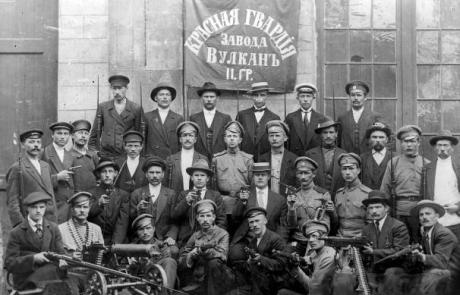(oDR) Failed utopias lead to the death of idealism, and the likes of Putin and Trump are symbols of this process. As we watch Russia struggle with history, the US and UK cannot afford to pretend that this history doesn’t affect us too.
Revolutions – and their centenaries – are best dealt with in the first person. That, of course, creates a certain awkwardness for an academic, whose stock in trade is meant to be distance from the subject of study. But nothing forces a reckoning with one’s place in the order of things quite like a revolution, and that is true of academics even 100 years after the fact. Witness, for example, the never-ending debates about what a revolution even is.
Slipping into the first person – reckoning with my place in the order of things – allows me to admit another awkwardness that has arisen in this centenary season: That of an American, living in the UK, who is expected by virtue of his profession to pronounce on the “Russian” revolution. If any combination of subject, audience and personal heritage could make me feel like more of an imposter, I don’t know what it is.
To lessen that awkwardness, I have told myself – and a handful of audiences – that October 1917 was not just a Russian revolution. February had already done away with monarchical absolutism and the doorway to modernity – at least in the Euro-centric conception that dominated the age – was open. But Bolshevism, as the name would suggest, was meant to be about more than that: about more than Russia, perhaps about more than modernity. […]
Read More © OpenDemocracy











